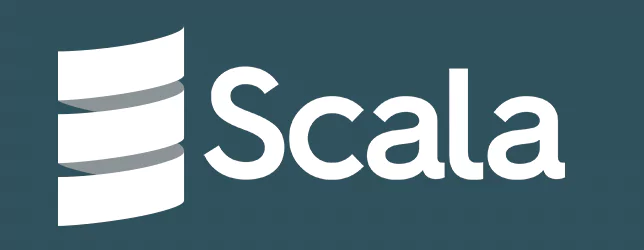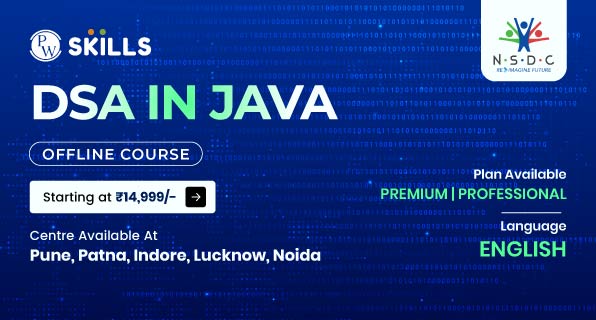Scala is a programming alternative to the popular Java language. Scala is concise and loaded with many features which makes it an ideal choice for building faster software solutions. Scala supports functional programming and object oriented programming language just as everything you need for an efficient and optimised software development.
In this blog, we will learn more about the Scala programming language and how it compares with the Java programming language on a bigger scale.
What is Scala?
Scala is an evolving programming language with more features and advancements as compared to Java programming language. As the name suggests this is a high level scalable language with support for both object oriented programming as well as functional programming.

Scala codes can easily run on Java Virtual Machines (JVM) and can even run on browsers after being transpiled to Javascript. Scalar resembles the C programming language using curly braces {}.
Scala Key Takeaways
- Scala is a high level general purpose programming language.
- Scala is a direct alternative to the Java programming language.
- It supports object oriented programming and functional programming.
- Scala has features like immutability, pattern matching, lazy evaluation, and more.
- Scala supports high order data types, operator overloading, optional parameters, raw strings, and more.
When It Started?
Scala was first released in 2003 and publicly released in 2004 which runs on the Java platform and is compatible with the Java program easily. Scala is a scalable programming language with a file extension as .scala or .sc under apache licence.
The latest stable version of the Scala programming language is 3.5.0. Released on August 22, 2024. This programming language was designed by Martin Odersky and started designing in 2001. Scala supports popular platforms like Java Virtual Machine (JVM), Javascript, LLVM, and more.
Why Choose Scala Programming Language?
Scala programming is a scalable high level programming language and a better alternative in 2025. You can choose for better performance and a quick software development life cycle. Scala is flexible when you want to make changes and you can easily develop your application components.

Scala can run on the Java platform with dynamic programming capabilities offering superior performance, user friendliness, and coding optimization. Scala is used at Apache Spark which is used in machine learning and data analytics. Scala is used by many top companies and platforms like LinkedIn, Twitter, Netflix, Siemens, Xerox, Sony Pictures Imageworks, and more.
Scala Vs Java Programming Language
Let us know the major difference between Java and Scala programming languages. Java and scala both have support for JVM (Java Virtual Machine).
- Scala programming language code offers very concise and expressive syntax with heavy boilerplate.
- Scala supports object orientation with functional support while Java is purely object oriented programming language.
- Scala has built in support with not natively supported.
- The compilation in Scala is slower as compared to Java programming.
- Scala prioritises immutability and is less prone to errors and easy to understand.
- Scala provides less complex code than Java programming.
Scala can be used when you need functional programming features with JVM compatibility. Also, for data engineering, concurrent systems, streaming, and more you can use Scala. When you need an enterprise grade application with stable and community support.
Join our Full Stack Development Telegram channel for exclusive updates and tips!
Features of Scala Programming Language
Scala is loaded with advanced features and support. The major features of scala language are listed below for your reference.
1. Object Oriented Support
Scala supports both object oriented programming along with functional programming language. You can represent every value as an object and every function as first class function support.
2. Statically Typed Programming
The Scala programming language is statically typed which helps catch errors at compile time. You can use type inference which can sometimes become necessary.
3. Easy syntax
Scala programming offers easy to learn and interpret syntax with an expressive type system. Scala has a concise and readable syntax with clear types.
4. Expressive Type System
The scala programming offers a compile time code execution with abstractions in a safe and coherent environment with support of generic class, polymorphic methods, union types, type lambdas, extension methods, match types, and more.
5. Functional Programming Language
Scala is a functional programming language with high order functions supported and built in lambdas function. There is always a return value with Scala expression along with immutable variables.
6. Integration Support
With Java Virtual Machine (JVM) support you get benefits such as memory management, platform independence, security, performance, and ability to use features of Java libraries. Scala also supports the Javascript platform to run on servers using the scala.js extension.
7. Extensive Libraries
Scala offers an extensive set of rich libraries with advanced frameworks support. The two major frameworks of Scala libraries are play framework and apache spark. Also scala.js supports third party libraries and tools like React, jQuery, and more.
Advantages of Using Scala Programming

Some of the major advantages of Scala programming are mentioned below.
- Scala provides you with clear and concise programming experience with least complex code.
- With Scala you can easily perform Object oriented programming.
- Scala provides you features like functional programming along with pattern matching.
- It provides greater flexibility and faster development time.
- With Scala it encourages immutability while reducing bugs related to shared mutable state.
- It requires powerful features for deconstructing data similar to switch but much more powerful and type safe.
Read More: Java Full Stack Developer Roadmap: Step by Step Guide
Disadvantages of Using Scala Programming
Some of the demerits of using Scala programming language below.
- Scala might be challenging for beginners, especially freshers who are new to development.
- It has a smaller user base and ecosystem compared to mainstream languages like Java, Python, and Javascript.
- Scala might provide slower compilation compared to Java language.
- Scala has a smaller developer community compared to systems like Java, Python, Javascript, etc.
- Scala offers many new job opportunities as compared to Java programming Language.
Also Read:
- Java Certification Can Transform Your Tech Career: 4 Key Java Certifications
- Java Native Interface Explained: 14 Outstanding Components to Know
- 7 Key Concepts to Master Java Concurrency: A Human-Centric Tutorial
- Java Full Stack Developer Roadmap, Step by Step Guide
Learn DSA With Java Programming Language
Build your Java programming language along with Data Structures and algorithms with Decode DSA With Java Course. Master competitive programming and solve real world problems based on Java language.
Work on capstone projects along with practice exercises, module assignments, and more. Get career guidance support from dedicated mentors at PW Skills. Complete the course and get industry recognised certification.
Join our Full Stack Development Telegram channel for exclusive updates and tips!
Scala Programming Language FAQs
Q1. What is Scala programming?
Ans: Scala is an evolving programming language with more features and advancements as compared to Java programming language. Scala codes can easily run on Java Virtual Machines (JVM) and can even run on browsers after being transpiled to Javascript.
Q2. Is Scala and Java the same?
Ans: Scala is very similar to Java programming language with OOPs and JVM support. However, scala is used with functional programming which makes it more valuable than other programming languages.
Q3. Can Scala replace Java?
Ans: Scala can be a better alternative to Java which offers functional programming language along with clear and concise code. However, Java is more stable and offers a more extensive ecosystem.
Q4. Is Scala a dying language?
Ans: Scala has a lower popularity as compared to other programming languages however the mainstream of Scala is limited and hence not used by more and more developers.
Q5. Is Scala similar to C++ programming?
Ans: Scala is a high level programming language with clear and concise code along with Object Oriented Programming language.


